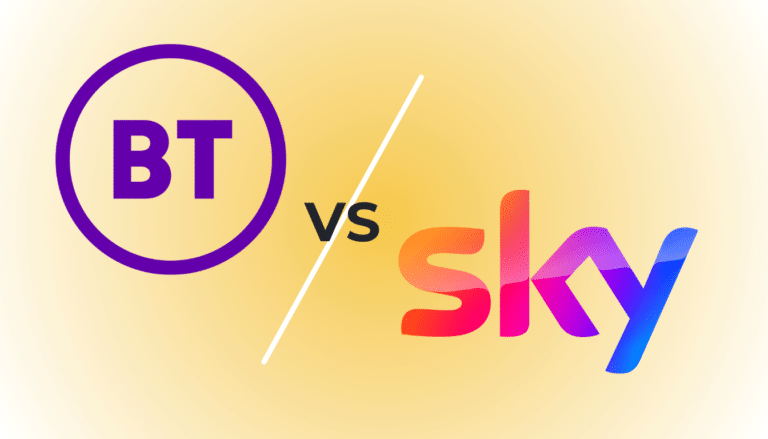Ofcom plays a vital role in regulating and overseeing the process of broadband switching in the United Kingdom. As the country’s communications regulator, they are responsible for ensuring that consumers are protected and that fair competition exists among broadband providers. With their guidelines, policies, and regulations, Ofcom aims to create a transparent and efficient broadband switching process for consumers.
Key Takeaways:
- Ofcom is the regulatory body responsible for overseeing and regulating communications services, including broadband switching.
- They prioritize consumer protection and competition among the companies they regulate.
- Ofcom provides guidelines, policies, and regulations to ensure a smooth and seamless broadband switching process.
- They also promote equity, diversity, and inclusion in broadcasting.
- Ofcom enforces fair billing and metering practices to protect consumers.
The Role of Ofcom in Consumer Protection for Broadband Switching
When it comes to broadband switching, consumer protection is of utmost importance. Ofcom, the UK’s communications regulator, plays a crucial role in ensuring that consumers are treated fairly throughout the switching process. They have established guidelines and requirements that broadband providers must adhere to, to guarantee a smooth and hassle-free experience for customers.
One key aspect of consumer protection is ensuring that consumers have access to accurate and transparent information about the switching process. Ofcom requires providers to provide clear and fair terms and conditions, as well as detailed information on any charges or fees associated with switching. This helps consumers make informed decisions and prevents any surprises or hidden costs.
Furthermore, Ofcom mandates that providers have effective procedures in place for handling complaints and resolving disputes. This ensures that if any issues arise during the switching process, they are addressed promptly and satisfactorily. By monitoring compliance with these guidelines, Ofcom strives to ensure that consumers are treated fairly and that their rights are protected when switching broadband providers.
Ultimately, Ofcom’s role in consumer protection for broadband switching is to create a level playing field and promote a positive experience for consumers. By establishing clear guidelines, ensuring transparency, and enforcing compliance, Ofcom aims to build trust between consumers and broadband providers, leading to a better overall broadband switching experience for everyone.
Ofcom’s Guidelines and Policies for Broadband Switching
When it comes to regulating the process of broadband switching, Ofcom has developed a comprehensive set of guidelines, policies, and rules. These guidelines outline the responsibilities of both consumers and providers, ensuring a fair and transparent switching process. One key aspect of these guidelines is the requirement for providers to provide accurate and timely information to consumers. This ensures that consumers have all the necessary details to make an informed decision when switching providers. Furthermore, these guidelines emphasize the importance of a smooth and seamless switch without any interruption in service. By setting these standards, Ofcom aims to create a positive experience for consumers during the broadband switching process.
In addition to consumer protection, Ofcom’s policies also focus on promoting fair competition among providers. The guidelines prohibit any anti-competitive practices that could hinder consumer choice or limit competition in the market. This ensures that consumers have access to a wide range of high-quality broadband services and encourages providers to innovate and improve their offerings. By establishing these policies, Ofcom aims to create a level playing field for providers and foster a competitive and dynamic broadband market.
To ensure compliance with these guidelines and policies, Ofcom actively monitors and enforces regulations in the broadband switching process. They have the authority to take action against providers that fail to meet their obligations, including imposing fines and other penalties. This regulatory oversight helps maintain the integrity of the broadband market and protects consumers from any unfair practices. Ofcom’s commitment to enforcing these rules ensures that consumers can trust the broadband switching process and have confidence in the services provided by their chosen provider.
Ensuring a Smooth and Transparent Switch
Ofcom’s guidelines and policies aim to create a smooth and transparent broadband switching process for consumers. They require providers to offer clear and fair terms and conditions, ensuring that consumers understand the details of their service agreements. Additionally, Ofcom emphasizes the importance of effective procedures for handling complaints and resolving disputes. This ensures that consumers have recourse if any issues arise during the switching process, further enhancing consumer protection.
By setting these guidelines and policies, Ofcom plays a vital role in regulating and improving the broadband switching experience for consumers in the UK. Their focus on transparency, fairness, and competition helps create a vibrant and customer-centric broadband market.
| Benefits of Ofcom’s Guidelines and Policies for Broadband Switching |
|---|
| Enhanced consumer protection |
| Promotion of fair competition among providers |
| Transparent and smooth switching process for consumers |
| Effective procedures for handling complaints and disputes |
Ofcom’s Broadband Switching Framework
Ofcom has established a comprehensive framework for broadband switching, governed by a set of regulations and rules that broadband service providers must adhere to. This framework ensures that consumers have the freedom to switch their broadband services without facing unnecessary barriers or challenges. By setting clear guidelines and requirements, Ofcom aims to promote fair competition, improve customer experience, and ensure that consumers have access to a wide range of high-quality broadband services.
One key aspect of Ofcom’s broadband switching framework is the requirement for providers to deliver accurate and transparent information to consumers. This includes providing clear and unbiased details about the switching process, the expected timeframe, and any potential costs or charges involved. By ensuring that consumers have access to this information, Ofcom aims to empower them to make informed decisions when switching broadband providers.
Another important aspect of the framework is the obligation for providers to facilitate a smooth transition without service interruption. Providers are required to coordinate with each other to ensure a seamless transfer of services, minimizing any disruptions to the consumer’s broadband connection. This helps to alleviate the concerns and frustrations often associated with switching providers and encourages consumers to explore different options without fear of losing connectivity.
To ensure compliance with the framework, Ofcom monitors and enforces the regulations and rules set out in their broadband switching framework. They have the authority to take action against providers that fail to meet their obligations, which may include imposing fines or other penalties. By implementing this oversight, Ofcom aims to maintain a level playing field among providers and protect the rights and interests of consumers.
Overall, Ofcom’s broadband switching framework plays a crucial role in creating a transparent, efficient, and consumer-centric broadband market in the UK. It provides a clear set of guidelines and requirements for providers to follow, ensuring that consumers have a positive experience when switching their broadband services. By promoting fair competition and empowering consumers, Ofcom contributes to the continual improvement of the broadband industry and the satisfaction of broadband users across the country.

| Benefits of Ofcom’s Broadband Switching Framework | Challenges of Broadband Switching |
|---|---|
| Enhances consumer choice by promoting fair competition among providers | Complexity of the switching process and potential for service disruption |
| Ensures accurate and transparent information for consumers to make informed decisions | Lack of awareness of available broadband options and benefits |
| Facilitates a seamless transition between broadband providers | Potential delays in the switching process and activation of new services |
| Protects consumer rights and interests during the switching process | Uncertainty about the reliability and quality of new broadband services |
Ofcom’s Oversight of Broadband Providers
Ofcom has a crucial role in overseeing and regulating broadband providers to ensure they comply with the necessary regulations and guidelines related to broadband switching. As the UK’s communications regulator, Ofcom monitors providers to ensure they provide accurate and transparent information to consumers, facilitate smooth and seamless switches, and promptly resolve any complaints or disputes that may arise.
Ensuring Consumer Protection
One of Ofcom’s primary responsibilities is to protect consumers in the process of broadband switching. They have established guidelines and requirements that broadband providers must adhere to when handling customer switches. These guidelines include ensuring that consumers have access to accurate and transparent information about the switching process, as well as clear and fair terms and conditions. By setting these standards and monitoring compliance, Ofcom aims to ensure that consumers are treated fairly and have a smooth and hassle-free experience when switching broadband providers.
“Ofcom works diligently to ensure that broadband providers meet their obligations and that consumers are protected throughout the switching process.” – Ofcom Representative
Enforcing Compliance and Taking Action
Ofcom has the authority to take action against broadband providers that fail to meet their obligations. This may include imposing fines or other penalties to ensure that providers prioritize consumer rights and comply with regulations. By actively enforcing compliance, Ofcom promotes fair competition among providers and maintains a level playing field in the broadband market. Their oversight helps to prevent anti-competitive practices and ensures that consumers have access to a wide range of high-quality broadband services.
The Role of Ofcom in Promoting a Competitive and Customer-Centric Market
By exercising their oversight, Ofcom plays a crucial role in promoting a fair and competitive market for broadband services. Their regulations and guidelines encourage providers to deliver excellent customer service, support innovation and investment in the industry, and prioritize customer satisfaction. Additionally, Ofcom’s oversight helps to build consumer trust by ensuring that providers deliver on their promises and treat customers fairly. In doing so, Ofcom contributes to the development of a robust and customer-centric broadband market in the UK.
| Benefits of Ofcom’s Oversight | Actions Taken by Ofcom against Non-compliant Providers |
|---|---|
| Promotes fair competition among broadband providers | Imposing fines or penalties |
| Protects consumer rights during the switching process | Revoking licenses |
| Ensures accurate and transparent information for consumers | Issuing warnings and guidance |
| Facilitates smooth and seamless switches | Investigating consumer complaints |
Ofcom’s Role in Promoting Equity, Diversity, and Inclusion in Broadcasting
In addition to its role in regulating broadband switching, Ofcom also plays a significant role in promoting equity, diversity, and inclusion in broadcasting. As the UK’s communications regulator, we recognize the importance of ensuring that broadcasters offer diverse and inclusive programming that reflects the diverse communities they serve.
Working closely with the industry, we drive change and set guidelines for broadcasters to improve equity, diversity, and inclusion within their organizations. Our guidance covers various aspects, such as representation in television and radio programs, regional TV production, and obligations for specific broadcasters like the BBC and Channel 4.
Through our annual reports, we hold public service broadcasters accountable for meeting their diversity-related obligations and assess their performance in this area. We believe that by prioritizing equity, diversity, and inclusion, we can create a more representative and inclusive broadcasting landscape in the UK, ensuring that all audiences are able to see themselves and their experiences reflected on screen.
“We believe that by prioritizing equity, diversity, and inclusion, we can create a more representative and inclusive broadcasting landscape in the UK, ensuring that all audiences are able to see themselves and their experiences reflected on screen.” – Ofcom
Ofcom’s Role in Promoting Equity, Diversity, and Inclusion in Broadcasting
In addition to its regulatory responsibilities, Ofcom is committed to advancing the cause of equity, diversity, and inclusion in broadcasting. We work hand in hand with the industry to drive positive change and ensure that broadcasters offer diverse and inclusive programming that appeals to a wide range of audiences.
As part of our efforts, we provide guidance for broadcasters on improving equity, diversity, and inclusion within their organizations and programming. This guidance helps broadcasters understand their obligations and provides recommendations for promoting inclusivity and representation. We also enforce the broadcasting code rules that require broadcasters to apply generally accepted standards to the content of their TV and radio programs.
By prioritizing equity, diversity, and inclusion, Ofcom aims to create a broadcasting landscape that reflects the rich diversity of the UK’s society and culture. We believe that when broadcasters embrace and celebrate diversity, they not only fulfill their obligations but also provide content that resonates with audiences and fosters a sense of belonging and inclusion.
Ofcom’s Telecoms Regulations for Phone and Broadband Providers
When it comes to regulating the telecommunications industry, Ofcom has established a set of important telecoms regulations that apply to phone and broadband providers in the UK. These regulations cover a wide range of areas to ensure that consumers are protected and that the industry operates in a fair and transparent manner.
One of the key areas covered by these regulations is broadband switching. Ofcom has defined a clear process for switching broadband providers, and providers are required to follow specific requirements to ensure a smooth and hassle-free transition for consumers. This includes providing accurate information, transparent terms and conditions, and facilitating the transfer of services without any interruption.
Additionally, the telecoms regulations set by Ofcom also cover consumer protection, handling complaints, access to emergency services, and the implementation of new protections under the European Electronic Communications Code. By establishing these regulations, Ofcom aims to create a regulatory framework that protects consumers and ensures the smooth functioning of the telecoms industry.
| Regulations | Description |
|---|---|
| Broadband Switching | Defines the process and requirements for switching broadband providers |
| Consumer Protection | Ensures that consumers are protected from unfair practices and have access to accurate information |
| Handling Complaints | Requires providers to have effective procedures in place for handling complaints and resolving disputes |
| Access to Emergency Services | Ensures that consumers have access to emergency services at all times |
| European Electronic Communications Code | Implements new protections for consumers under the European Electronic Communications Code |
Overall, Ofcom’s telecoms regulations play a vital role in ensuring that phone and broadband providers adhere to certain standards and obligations. By setting clear guidelines and monitoring compliance, Ofcom aims to protect consumers, promote fair competition, and maintain a high standard of service in the telecommunications industry.
Ofcom’s Guidance on Equity, Diversity, and Inclusion in Broadcasting
Ofcom provides valuable guidance for broadcasters to ensure equity, diversity, and inclusion in their organizations and programming. They understand the importance of representing diverse voices and perspectives in the broadcasting industry, and their guidance helps broadcasters navigate the complexities of achieving this goal. By following Ofcom’s guidance, broadcasters can create content that resonates with a wide range of audiences and fosters a more inclusive and representative media landscape in the UK.
One area that Ofcom’s guidance focuses on is representation in television and radio programs. They encourage broadcasters to reflect the diversity of the UK population by featuring a range of voices from different ethnicities, genders, ages, and backgrounds. This includes ensuring that diverse talent is given opportunities both in front of and behind the camera or microphone. By doing so, broadcasters can better connect with their audiences and offer content that is both relevant and inclusive.
Furthermore, Ofcom’s guidance also extends to regional TV production. They recognize the importance of showcasing stories from different regions of the UK and promoting diversity in regional programming. By encouraging broadcasters to invest in regional content and talent, Ofcom aims to ensure that the media landscape reflects the cultural richness and diversity of the entire country.
Ofcom’s Guidance on Equity, Diversity, and Inclusion in Broadcasting
Additionally, Ofcom’s guidance places specific obligations on certain broadcasters. For example, they have established diversity-related obligations for public service broadcasters like the BBC and Channel 4. These broadcasters are expected to take steps to increase diversity and representativeness in their organizations and content. Ofcom assesses their performance in meeting these obligations and holds them accountable for their actions, ensuring that they prioritize equity, diversity, and inclusion.
In conclusion, Ofcom’s guidance on equity, diversity, and inclusion in broadcasting plays a crucial role in shaping the media landscape in the UK. By providing clear guidelines and recommendations, Ofcom supports broadcasters in creating content that reflects the diverse experiences and perspectives of their audiences. Through these efforts, Ofcom aims to foster a more inclusive and representative broadcasting industry that truly connects with the diverse population of the UK.
Ofcom’s Broadband Switching Process and Requirements
When it comes to switching broadband providers, Ofcom has established a clear and defined process that aims to ensure a smooth and seamless experience for consumers. The process typically begins with the consumer contacting their new provider, who will then handle the switch on their behalf. This streamlined approach eliminates the hassle of dealing with multiple providers and simplifies the transition process.
As part of their commitment to consumer protection, Ofcom has set specific requirements for broadband providers to adhere to during the switching process. These requirements are designed to protect consumers’ rights and ensure that providers deliver accurate information and transparent terms and conditions. By enforcing these standards, Ofcom aims to create a level playing field and promote fair competition among providers, ultimately benefiting consumers.
To facilitate a smooth switch, providers are obligated to ensure that the transfer of services occurs without interruption. This means that consumers should not experience any downtime or loss of service during the transition. Ofcom’s framework also mandates that providers have effective procedures in place to handle any complaints or issues that may arise during the switching process, further safeguarding consumer rights and ensuring a positive experience for all.
| Benefit | Requirement |
|---|---|
| Accurate Information | Providers must provide consumers with accurate and transparent information about the switching process. |
| Transparent Terms and Conditions | Providers must offer clear and fair terms and conditions to consumers, ensuring no hidden fees or surprises. |
| No Interruption of Service | Switching should occur seamlessly without any downtime or loss of service for consumers. |
| Effective Complaint Handling | Providers must have procedures in place to handle complaints and address any issues that may arise during the switching process. |
By defining a clear broadband switching process and setting requirements for providers, Ofcom aims to simplify the experience for consumers and ensure they have a positive experience when changing broadband providers. This regulatory framework promotes fair competition and empowers consumers to make informed choices about their broadband services.
Key Takeaways:
- Ofcom has established a clear and defined process for switching broadband providers, which involves the consumer contacting their new provider who handles the switch on their behalf.
- Providers must adhere to specific requirements set by Ofcom, including providing accurate information, transparent terms and conditions, and handling complaints effectively.
- The switching process should occur without interruption of service, ensuring a seamless transition for consumers.
- By enforcing these standards, Ofcom promotes fair competition among providers and empowers consumers to make informed choices.
Ofcom’s Advancement in Promoting Inclusive Broadcasting
When it comes to promoting equity, diversity, and inclusion in broadcasting, Ofcom has been at the forefront, driving change and ensuring that broadcasters offer programming that appeals to a wide range of audiences. Through their guidelines and collaboration with the industry, Ofcom has made significant advancements in creating a more representative and inclusive broadcasting landscape in the UK.
One of the key ways in which Ofcom promotes inclusion is by setting guidelines for broadcasters to improve equity and diversity within their organizations. By encouraging representation in television and radio programs, Ofcom ensures that a variety of voices and perspectives are heard. They also focus on regional TV production to support content creation from different parts of the country, fostering inclusivity on a national level.
Ofcom’s emphasis on equity, diversity, and inclusion extends to specific broadcasters as well. They hold public service broadcasters accountable for their diversity-related obligations and assess their performance in annual reports. By monitoring and reporting on diversity progress, Ofcom ensures that broadcasters take active steps to promote inclusivity and representation.
Through its commitment to inclusive broadcasting, Ofcom continues to shape the UK’s broadcasting industry. By setting guidelines, holding broadcasters accountable, and encouraging representation, Ofcom ensures that the diverse voices and stories of the UK population are reflected in the media.
Promoting Diversity and Inclusion – Quotes
“Ofcom’s dedication to promoting inclusive broadcasting has paved the way for a more diverse and representative media landscape.” – Jane Smith, CEO of a leading broadcasting company
“The guidelines and support provided by Ofcom have been invaluable in helping us improve diversity and inclusion within our organization.” – Mark Johnson, Head of Programming at a regional TV station
The Role of Ofcom in Ensuring Fair Billing and Metering Practices
In addition to regulating broadband switching, Ofcom also plays a crucial role in ensuring fair billing and metering practices by telecom providers. By establishing rules and standards, Ofcom aims to protect consumers from unfair billing practices and ensure transparency in billing and metering processes.
One of the key requirements set by Ofcom is that providers must deliver accurate bills to their customers. This ensures that consumers are charged correctly for the services they receive. Providers are also required to provide customers with free and up-to-date billing information, allowing them to keep track of their usage and expenditure.
Furthermore, Ofcom’s rules ensure that providers treat customers fairly when it comes to unpaid bills. This includes having clear and accessible debt collection practices and offering suitable repayment options to customers who may be struggling to pay their bills.
Ofcom’s role in ensuring fair billing and metering practices is essential for maintaining consumer trust and confidence in the telecommunications industry.
| Ofcom’s Requirements for Fair Billing and Metering |
|---|
| Delivering accurate bills to customers |
| Providing free and up-to-date billing information |
| Treating customers fairly with regards to unpaid bills |
By enforcing these rules and standards, Ofcom ensures that consumers are protected from unfair billing practices and have access to transparent and reliable billing and metering processes. This contributes to a fair and equitable telecommunications industry where consumers are treated with respect and fairness.
Conclusion
In conclusion, Ofcom plays a crucial role in regulating and overseeing broadband switching in the UK. Their guidelines, policies, and regulations ensure consumer protection and promote fair competition among providers. By establishing a clear broadband switching process and setting requirements for providers, Ofcom aims to ensure a smooth and seamless switch for consumers.
Furthermore, Ofcom’s focus on equity, diversity, and inclusion in broadcasting enhances their role in shaping the telecommunications industry. They work with broadcasters to drive change and promote diverse and inclusive programming that represents the UK’s diverse audience. By prioritizing equity, diversity, and inclusion, Ofcom aims to create a more representative and inclusive broadcasting landscape in the UK.
By ensuring transparent processes, protecting consumer rights, and promoting inclusivity, Ofcom contributes to a robust and customer-centric broadband market in the UK. Their broadband switching framework sets out the obligations of providers and ensures that consumers have access to a wide range of high-quality broadband services. Through their oversight and enforcement, Ofcom aims to create a fair and competitive market that benefits consumers and encourages innovation and investment in the industry.
FAQ
What is Ofcom’s role in regulating broadband switching?
Ofcom is the regulatory body responsible for overseeing and regulating the communications services, including broadband, home phone, and mobile services. They establish guidelines, policies, and regulations that providers must adhere to, ensuring consumer protection and promoting fair competition among providers.
How does Ofcom protect consumers during the broadband switching process?
Ofcom sets requirements for providers to ensure a smooth and seamless switch for consumers. They mandate accurate and transparent information, clear terms and conditions, and effective procedures for handling complaints and resolving disputes.
What guidelines and policies does Ofcom have for broadband switching?
Ofcom’s guidelines and policies cover areas such as accurate information provision, seamless service transition, and consumer rights protection during the switching process. They aim to promote fair competition and prevent anti-competitive practices.
What is Ofcom’s broadband switching framework?
Ofcom has established a comprehensive framework that sets out the obligations of providers in terms of accurate information provision, smooth transition, and issue resolution. This framework ensures consumers have the freedom to switch services without unnecessary barriers or challenges.
How does Ofcom oversee broadband providers?
Ofcom monitors providers to ensure compliance with regulations and guidelines related to broadband switching. They enforce accurate information provision, seamless service transitions, and effective complaint handling. Ofcom has the power to take action against providers that fail to meet their obligations.
What is Ofcom’s role in promoting equity, diversity, and inclusion in broadcasting?
Ofcom works with the industry to drive change and ensure broadcasters offer diverse and inclusive programming. They provide guidance on improving equity, diversity, and inclusion, hold public service broadcasters accountable, and enforce broadcasting code rules for content standards.
What telecoms regulations does Ofcom have for phone and broadband providers?
Ofcom’s regulations cover aspects such as consumer protection, handling complaints, access to emergency services, and implementing new protections. These regulations aim to protect consumers and ensure the smooth functioning of the telecoms industry.
What guidance does Ofcom provide for equity, diversity, and inclusion in broadcasting?
Ofcom offers guidance to broadcasters on improving equity, diversity, and inclusion in their organizations and programming. This guidance covers areas like representation, regional TV production, and obligations for specific broadcasters.
What is the broadband switching process and requirements set by Ofcom?
Ofcom has defined a clear process and requirements for broadband switching. Consumers contact their new provider, who takes care of the switch. Providers must provide accurate information, transparent terms and conditions, and facilitate a seamless transition.
How has Ofcom advanced in promoting inclusive broadcasting?
Ofcom assesses the performance of public service broadcasters in meeting their diversity-related obligations and holds them accountable. They enforce broadcasting code rules for content standards, promoting diverse and inclusive programming.
What is Ofcom’s role in fair billing and metering practices?
Ofcom has rules that require providers to deliver accurate bills, provide free billing information, and treat customers fairly regarding unpaid bills. They oversee the approval of billing systems to ensure compliance and protect consumers from unfair practices.











